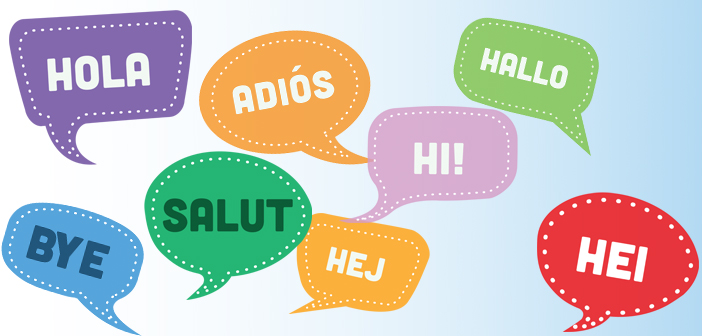They say the road to hell is paved with good intentions, but I think the same can be said about the road to second language mastery.
It seems like almost everyone I meet is trying to learn French, become fluent in Spanish or brush up on their German. The trouble is, outside of Europe, I know very few people who ever actually learn another language.
This group of people, regrettably, includes me. I’m always downloading an app to learn Spanish or buying Italian language-learning tapes. I have books on French and Portuguese … and alas, I’m still only (debatably) proficient in English. My conversational Spanish is decent, if I’m conversing with an elementary-aged child; but other than that, I only know the most important words in other languages.
Generally, I can say, “Please,” “Thank you,” “Where is the bathroom,” “I need,” “Hello,” “Goodbye,” “Good Morning” and “Goodnight.” I’ve got those down in German, Spanish, French and Italian. But, on a recent trip to Amsterdam, I realized that linguistically, I was woefully unprepared.
This, if you’ve ever journeyed to the Netherlands is not a huge issue. Nearly everyone speaks English (and usually three or four other languages) and can easily switch between them at will. But, even if I had the correct words in front of me, Dutch is a terrible language to learn. It is difficult and peppered liberally with guttural throat-clearings and an absurd overuse of the letter “j”. One local Amsterdammer friend went so far as to proclaim Dutch “the ugliest language in the world,” and I cannot help but agree. She went on to say that even if I were to move to the Netherlands, it would be “pointless” and “too difficult to learn.” While this recommendation took the pressure of ever learning Dutch right off my Bucket List, there are a few words I consider the most important – Dutch words that serve me well but aren’t the normal pleasantries learned in other languages.
This brought to mind the best words from other languages, as well – words or phrases used awkwardly in between English that will add some street cred to your next vacation abroad.
From Dutch, gezellig. It has no direct English translation, but basically means cozy or comfortable. A night spent drinking wine with friends is gezellig. Rush hour traffic is not. Also, lekker, which means tasty. But the Dutch use it beyond food, sort of the equivalent of the English “hot” which can describe more than temperature. Your celebrity crush is lekker, and so is that Dutch apple pie on your plate. This brings me to the final Dutch phrase that will serve you well: extra slagroom (pronounced sla – clear your throat disgustingly – roam) meaning “extra whipped cream,” which is probably the most important phrase to learn in any language.
In Spanish, resaca, which can mean undertow, but usually means “hungover” and is exactly the word you will need when you talk to the man at the farmacia on the morning after a night of drinking sangria.
In Italian, saying allora, meaning “then” or “so,” makes you sound a little more interesting, or for more fun, use rocambolesco, which means “nail-biting” or “daring” – an apt description of any drive down southern Italy’s winding sea-cliff roads.
So, you haven’t quite mastered that second language, or the Rosetta Stone software is quietly collecting dust in a drawer. Instead, try spicing up your doubtful, American-accented attempts to speak another language with something besides “thank you.” It could just be the extra slagroom on top of a new adventure or an ice-breaker to meet new friends.














